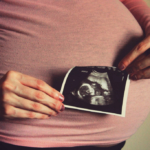In our clinic at the Center for Women’s Mental Health, we see a significant number of women who come in for the treatment of depression and anxiety while undergoing infertility treatment. While for some women this is the first time they have experienced depression and/or anxiety, most of the women who we see in the clinic have a history of depression and/or anxiety long before they had to deal with infertility and its treatment.
In this population of women, we typically recommend psychotherapy and, when medications are indicated, treatment with the serotonin reuptake inhibitors. One of the questions that women ask about antidepressants is: “Will the medication affect my chances of getting pregnant?” Great question, but unfortunately we don’t really have any studies which have specifically examined the effect of antidepressants on fertility.
There have been a few studies looking at the impact of SSRIs on the outcomes of in vitro fertilization (IVF). In a retrospective study comparing IVF outcomes in SSRI-treated women and women with no exposure, there were no significant differences between the groups in terms of peak estradiol levels, number of oocytes retrieved, number of oocytes fertilized, percentage of 8-cell or blastocysts developed, day of transfer, or initial hCG values; however, 40% of women taking SSRIs had pregnancies which resulted in a live birth, as compared to 51% of women with no exposure to antidepressant.
While it would be easy to blame the medication for this reduction in IVF success, there may be some other, very important, ways to explain this finding. One possibility is that the illness itself, anxiety or depression, may negatively affect fertility. (This is a plausible hypothesis given that severe depression or stress can modulate the hypothalamic-pituitary-gonadal or HPG axis and can cause menstrual irregularity.)
In a nationwide register-based cohort study from Sweden, researchers investigated the associations between depression, anxiety, and antidepressants before in vitro fertilization (IVF) and IVF cycle outcomes. The study included nulliparous women undergoing their first IVF cycle who were part of the Swedish Quality Register of Assisted Reproduction (n = 23,557).
In total, 4.4% of women had been diagnosed with depression/anxiety and/or treated with antidepressants before their first IVF cycle. In this group of 1044 women, the odds for pregnancy and live birth were decreased (AOR = 0.86; 95% CI, 0.75-0.98; and AOR = 0.83; 95% CI, 0.72-0.96, respectively) when compared to women with no history of depression/anxiety or treatment with an antidepressant.
For women who had filled a prescription for an SSRI (n = 829), rates of pregnancy and live birth did not differ from non-exposed women. In contrast, women with a depression/anxiety diagnosis but no antidepressant treatment (n = 164) had reduced odds of pregnancy (AOR = 0.58; 95% CI, 0.41-0.82) and live birth (AOR = 0.60; 95% CI, 0.41-0.89).
Among the women who became pregnant (39.7%), there were no statistically significant associations between exposure and risk of miscarriage except for the women taking non-SSRI antidepressants (n=52, AOR = 3.56; 95% CI, 1.06-11.9).
So what we see in this study is that untreated depression or anxiety, but not SSRI antidepressants, appear to negatively impact fertility, reducing rates of pregnancy and live births by about half. That said, one of the things that troubles me in this study is the low rates of anxiety and depression (4.4%) observed in this population. In women of reproductive age, we would expect that rates of depression and anxiety would be somewhere around 15%-20%. While the number of women taking antidepressants is most likely an accurate estimate (although we cannot guarantee that the women are actually taking the medication), I suspect that the number of women (n=215) diagnosed with depression or anxiety is an underestimate. It could be that we are only assessing the impact of depression and anxiety in those women with the most severe symptoms, as women with mild to moderate symptoms may be labeled as “not depressed”.
Taking these issues into consideration, I do not think we can say with certainty that untreated depression has a negative effect on infertility. On the bright side, I do think we can tell our patients that antidepressants do not appear to negatively affect IVF outcomes.
Ruta Nonacs, MD PhD
Cesta CE, Viktorin A, Olsson H, Johansson V, Sjölander A, Bergh C, Skalkidou A, Nygren KG, Cnattingius S, Iliadou AN.
Fertil Steril. 2016 Jun;105(6):1594-1602.e3.







I am interested to know the latest research on risks/benefits of not treating a young woman with Bipolar 1 Disorder during conception until delivery. Thank you in advance for this information.